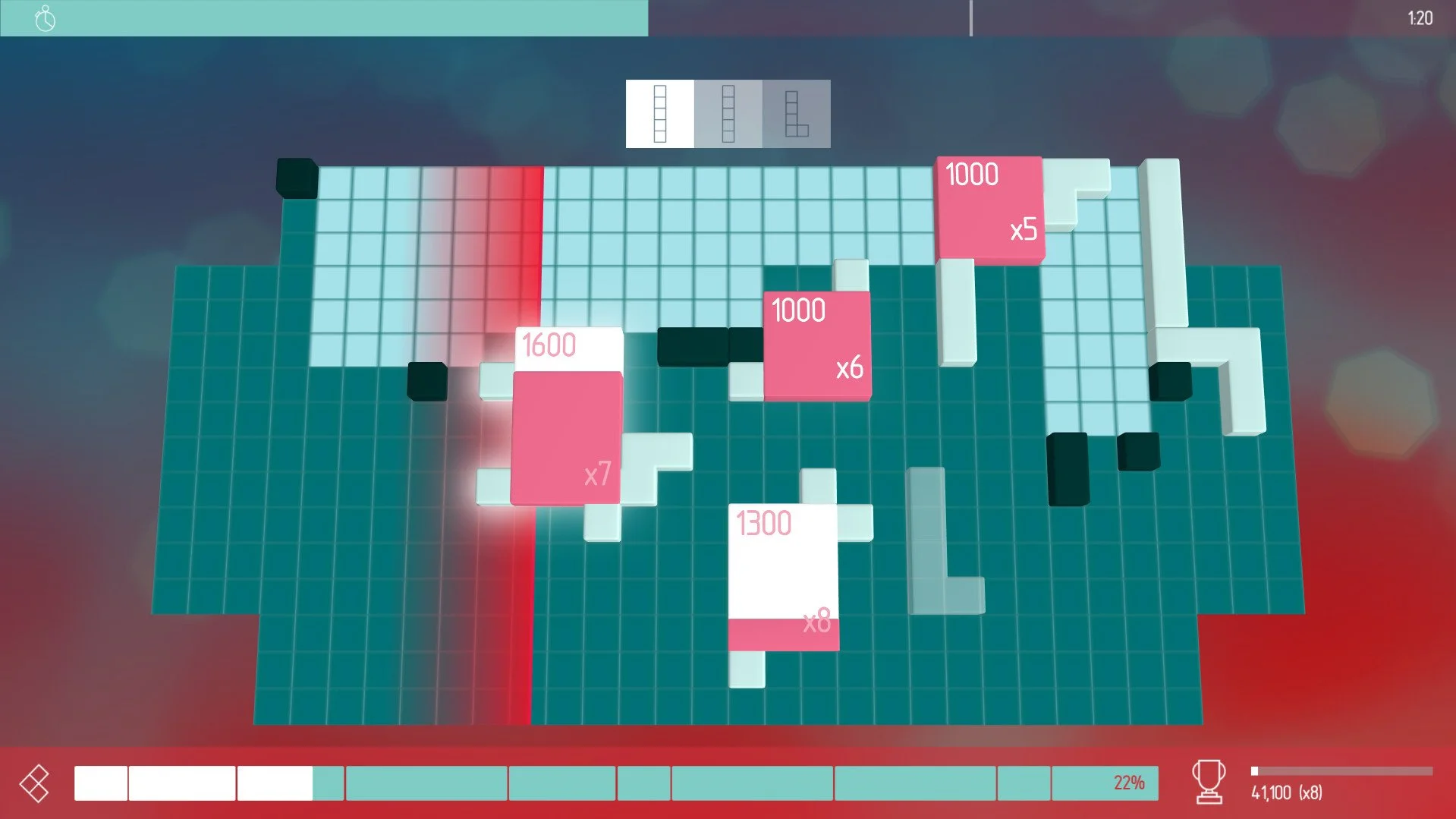Chime Sharp Review
The original Chime, a ‘charity’ game, was a great puzzler. It was slight, occasionally mechanically clunky, but made with real vision and love. Drawing inspiration from Tetris, as well as the Miziguchi helmed Lumines, it was an exploration into the hypnotic quality of block puzzlers and repeated musical phrasing.
In each stage, you were presented with a grid and had to place tetraminoes-but-not across the board to cover each square. A timeline swept along with the rhythm of the stage’s OST, and maintaining a regular combo of placement or creating pleasingly symmetrical quads granted bonus points. As more of the stage became covered, the more the music was layered, until at 100% coverage and beyond, the whole song had built itself around your play, with each additional drop triggering additional samples.
It’s interesting to view Chime in 2021, because so many of its best ideas were utilised, in a roundabout way, in Tetris Effect. The journey each piece of music takes in Effect’s, well, Journey mode, is of a broadly similar trajectory to how Chime’s stages assemble themselves. Lumines did all this first of course, but never with much musical precision. Lumines is one of my very favourite games of all time, but does have the coveted honour of being the only game my partner has ever asked me to ‘turn down a wee bit’.
Chime was the first game, outside of Harmonix titles like Frequency and Amplitude, that really seemed to be developed with an understanding of music, composition, and even conducting at its heart. What made Chime a treat in its original release on the Xbox 360, was that each song or stage played differently, with each connected to its own pack of wonky shapes, as well as to a distinct grid with its own notches and corners ensuring that each felt as distinguished as its varied soundtrack. Couple all this with the fact that the strategy of filling the grid and gunning for high scores was hugely mechanically enjoyable and rewarding in and of itself, it was a real winner of a game.
When Chime’s first iterative sequel, Chime Super Deluxe, hit the PS3 it was expanded. The added heft was both a blessing and curse, with the whole thing feeling a bit less focussed, and the added tracks lacking the punch that made the more compact original such a joy to play.
Then, in 2017, after two lacklustre rounds of crowd funding, and over a half a decade since Super Deluxe landed, Chime Sharp arrived. It was still the same game, yet my passion for its concept had waned even further.
It was a bit sharp.
I use the word here not in a literal, tactile sense, or a sour, citrus sense, but rather in its musical definition. It’s just a shame that I don’t mean in a semitone above ‘C’ and below ‘D’ way, but rather a ‘I can hear the note you’re trying to hit, but you’re just a bit sharp’ way.
Still helmed by Ste Curran, the heart of Chime still beat in this incarnation, but the additional tracks and modes felt like a distraction.
Booting it up today, progress feels more forgiving that I remember its initial release being; the soundtrack leaps just a little too violently between genres; and the engine isn’t quite as smooth on Switch, meaning that occasionally it commits the most heinous puzzle game sin of all by forcing what should be unforced player errors. It’s still a good game, but a game that suffers from bloat.
Years of gestation and Curran’s desire to revisit the game that largely defined his early development career means that whilst this is unspeakably a labour of love, it falls fairly short of the original’s greatness. Jonathan and Minty frequently discuss how The Binding of Isaac’s balance has come in waves with each expansion prior to Repentance improving certain areas whilst breaking others.
Chime Sharp is nowhere near as expansive as Isaac, but in this third revision of the game, it is slightly overcooked and overthought.
Chime is one of those games that got it right the first time. A lightning in a bottle piece of media that did something different. In 2017 I was disappointed in the game’s return. Revisiting it in 2021 I’m almost a little frustrated.


